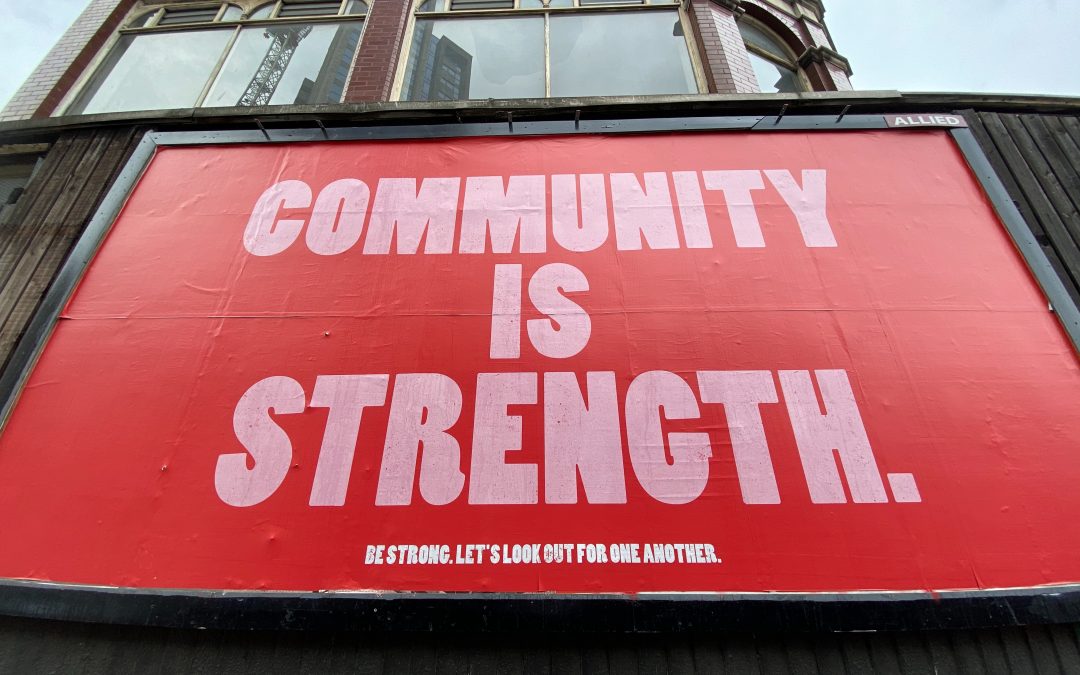
Community Leadership Summit 2012 Announced
Can’t see the video? [Click here](https://www.youtube.com/watch?v=7ObvGIUYjNE)!
Now in it’s *fourth* year, the *Community Leadership Summit* is the annual event for community managers and leaders, attracting over 200 attendees from all around the world and a diverse range of industries and projects.
Be sure to join us the weekend before *OSCON* on the **14th – 15th July 2012** in *Portland, Oregon*. The event is **free** but you need to [register first](https://www.communityleadershipsummit.com/register/).

Ubuntu 12.04 Accessibility Plans

Accessibility is a [core value](https://www.ubuntu.com/project/about-ubuntu/our-philosophy) for Ubuntu and we have a wonderful [Ubuntu Accessibility Team](https://wiki.ubuntu.com/Accessibility) who are passionate about making Ubuntu a truly accessible platform for everyone.
Recently the team have been putting the finishing touches on their plans for the 12.04 cycle and I just wanted to highlight some these plans and encourage those of you who are interested to get involved.
Many thanks to Penelope Stowe for providing much of the content for this blog entry and to Alan Bell for reviewing it to ensure it is comprehensive and reflects the team well.
## 12.04 Plans
The accessibility plans for *12.04* cycle can be broken into four main areas:
1. Testing
2. Development
3. General Community Work
4. Kubuntu
Since this is a LTS release the team is focusing on polishing and resolving issues that have caused problems for users with accessibility needs in the last few releases.
### Testing
The primary goals with testing this cycle are to make it easier for users without accessibility needs to test accessibility features. Since there are no major feature changes planned for 12.04, this cycle should be slightly easier than it’s been in the past where test cases have had to change monthly, if not weekly, as features changed, were added, and things broke. Penelope is also working with Charline on the Design Team to try to get some usability testing of the accessibility features of Ubuntu.
**See the [blueprint](https://blueprints.launchpad.net/ubuntu/+spec/desktop-p-accessibility-team-testing)**.
### Development
Most of the development work being done for 12.04 is around polish and fit and finish, however there is one important feature that needs to be added: *screen magnification*. At the very least there are plans in place to get screen magnification into Unity 2D, but the team is hoping to be able to work with the Desktop Experience team to get it into Unity 3D as well.
**See the [blueprint](https://blueprints.launchpad.net/ubuntu/+spec/desktop-p-accessibility-polish)**.
### Community
The community focus in this cycle will be in cleaning up documentation, trying to gain more community involvement, and researching how Ubuntu accessibility can better serve people with learning disabilities/differences including ADHD, autism, dyslexia (just to name a few). Inspired by the other development summaries, the Accessibility Team will be aiming to write monthly blogs summarizing bite-sized bugs to try to attract more developer support, as well as blogging more about the current activities (both development and community) throughout the cycle.
**See the [blueprint](https://blueprints.launchpad.net/ubuntu/+spec/community-p-accessibility-team-community-goals)**.
### Kubuntu
The Kubuntu team is going to work to integrate more accessibility into their desktop. This will include improving the *qt-at-spi* integration with *at-spi2*, reviewing applications to see which are accessible, and packaging [Simon Listens](https://www.simon-listens.org/index.php?id=122&L=1). They also plan on working with the upstream [KDE Accessibility](https://accessibility.kde.org/) team to try to update documentation of what’s available.
**See the [blueprint](https://blueprints.launchpad.net/ubuntu/+spec/desktop-p-kubuntu-accessibility)**.
## Getting Involved
The *Accessibility Team* are always looking for help and support from developers, testers, documentation writers, wiki gardeners and more.
You can get in touch with them in a few different ways:
* **On IRC**: `#ubuntu-accessibility` on [freenode IRC](https://www.freenode.net)
* **On the Mailing List**: [ubuntu-acessibility](https://lists.ubuntu.com/mailman/listinfo/Ubuntu-accessibility) (see the [archive](https://lists.ubuntu.com/archives/ubuntu-accessibility/))
Also see their:
* **Blog**: [https://ubuntuaccessibility.wordpress.com](https://ubuntuaccessibility.wordpress.com)
* **Wiki**: [https://wiki.ubuntu.com/Accessibility](https://wiki.ubuntu.com/Accessibility)
You can also keep up to date with the progress on these projects with their [burndown chart](https://status.ubuntu.com/ubuntu-precise/group/topic-precise-desktop-accessibility.html).
Many thanks to *Penelope Stowe, Alan Bell, Charlie Kravetz, Mackenzie Morgan, Luke Yelavich, Frederick Gladhorn* and the other members of the team for their wonderful contributions to making Ubuntu more accessible.
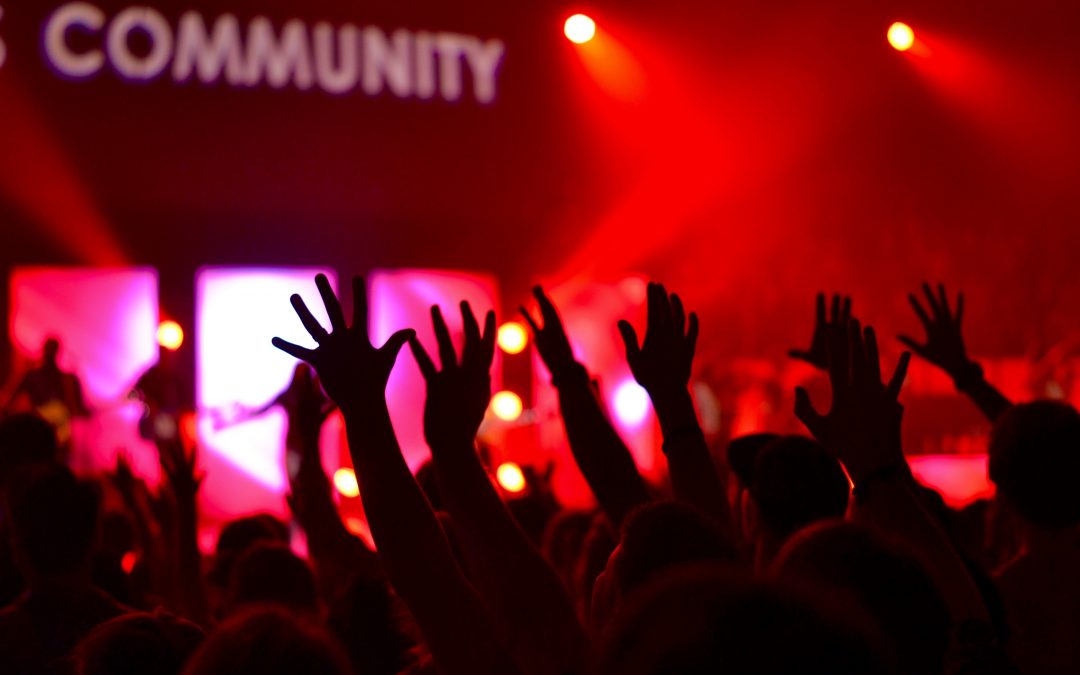
Google Tashout
Seen just now in a Google Hangout:
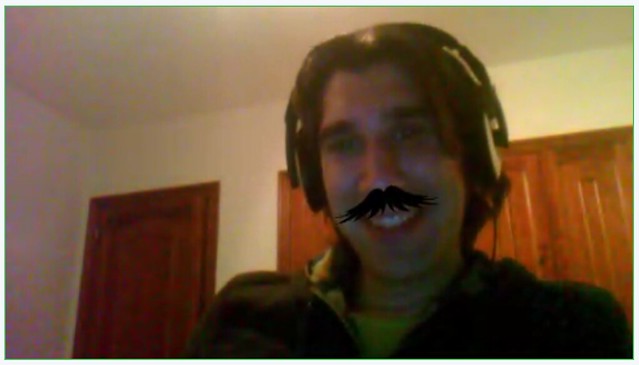

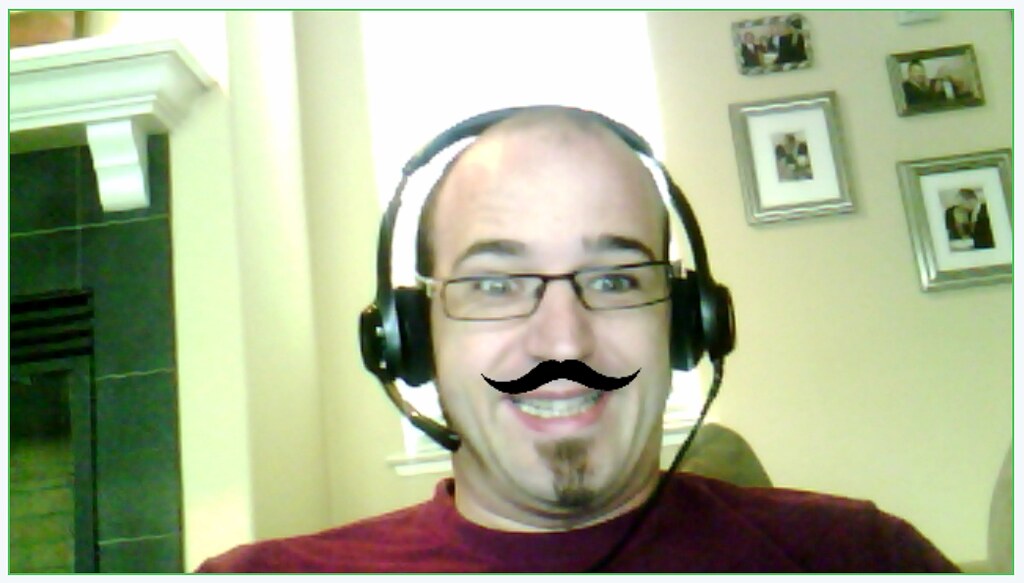
Google, we [salute you](https://www.movember.com/).

Behind The Canonical Community Team
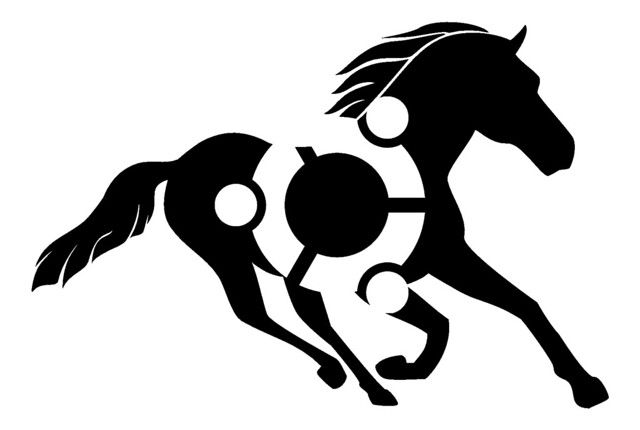
Our logo: a collection of horse parts creepily arranged to form an Ubuntu logo.
One of the topics that we discussed at the recent [Ubuntu Developer Summit](https://uds.ubuntu.com) in Orlando was how my team, the *Canonical Community Team* at Canonical, can best serve our community. The team’s mandate is to build a fun, productive, and worthwhile community in which everyone can participate and help to make Ubuntu successful.
One realization over the last few weeks is that the team has changed quite a bit over the years and it could be useful to provide some background on how the team works, what we work on, what we don’t work on, and how you folks can interact with us.
## In The Beginning
Things were quite different when I first joined Canonical. There was no community team, just me, and back then I reported directly to Mark Shuttleworth. Mark used to like new starters to report directly to him for those roles he had a personal interest in with the intention of moving them over later to report to someone else when he was comfortable that things were running smoothly.
A little while into working at Canonical Mark asked me to move over to join the Ubuntu Engineering Management team and report to Matt Zimmerman, our CTO (who has since moved on to work at [Singly](https://singly.com/)).
Since then things have transitioned from the team being just me and myself to a team of community coordinators who I manage. As such, the nature of my role has changed over the years from being purely community-facing to now managing a team who work closely with the community too.
## The Team
I am now going to spin through each member of the team and summarize what they do and how their role has adjusted and developed over time.
One important point to note is that everyone on the team has incredibly diverse jobs. While I will be describing their primary responsibilities below, there are also a wealth of other small tasks, issues, situations, and problems that everyone on the team coordinates with every day. Put it this way…no-one gets bored very easily. 😉
### David Planella
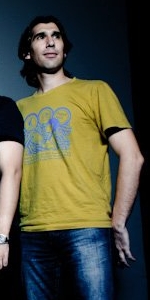
**Ubuntu App Dev and Translations Coordinator**
Based in Spain.
**Has wonderful hair**.
`dpm` on IRC.
**[Email David](mailto:davidDOTplanellaAtcanonicalDOTcom)**.
David was originally hired to work exclusively on translations. His role was created out of a need for the OEM team to deliver quality translations to customers, but it was felt that we could expand this position sufficiently to help build growth and support for our large community of translators. David was a natural fit for the position with his experience in the translations community.
In the Oneiric cycle I asked David to expand his focus and work on the application developer side of Ubuntu, which he was happy to do so. Since then he has worked with the UX and Web teams at Canonical to put together the IA, design, and user testing for [developer.ubuntu.com](https://developer.ubuntu.com), with wonderful results.
His work is now continuing to grow a community of app developers and a community that can provide support and guidance around delivering apps on Ubuntu. He is still involved in translations but this is reduced somewhat. David also organizes the Ubuntu App Developer IRC training event in each cycle.
### Jorge Castro
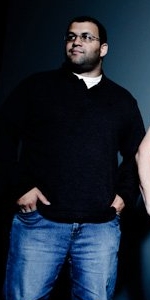
**Ubuntu Cloud Coordinator**
Based in Florida, USA.
**Huge dinosaur fan**.
`jcastro` on IRC.
**[Email Jorge](mailto:jorgeDOTcastroATcanonical-DOT-com)**.
Jorge was originally hired to work with upstreams to help them work with Ubuntu. As his role developed, and particularly as we started building technology such as the App Indicators and ultimately Unity, Jorge was tasked with working with upstreams to help them to make use of our technology.
As Unity development continued, I asked Jorge to also focus on growing a community who would participate actively in Unity itself. He worked closely with the DX team to help get things in place whereby developers could contribute to the Unity code base.
Towards the end of the last cycle I asked Jorge to spend more time working with the Juju team and to go out to some events to evangelize Ubuntu cloud technology. This was a good fit and Jorge’s role has now changed to working with and growing the Ubuntu Cloud community full-time, with a particular focus on Juju and growing a community of Juju charmers.
In addition to this Jorge works on parts on parts of UDS, but these responsibilities will be moving over to Michael in the next cycle.
### Daniel Holbach

**Ubuntu Developer Relations**
Based in Germany.
**Creates awesome mix tapes and hates it when Jono and Jorge talk about Megadeth**.
`dholbach` on IRC.
**[Email Daniel](mailto:daniel-DOT-holbachATcanonicalDOTcom)**.
Daniel was the first horseman to join the team shortly after it was formed, transitioning over from the Ubuntu distro team. Daniel has always worked and focused on growing our developer community…specifically those who participate as MOTU and Core Devs. Daniel has a long heritage of working with developers in the Ubuntu community.
Daniel has also worked on projects such as Harvest, 5-A-Day, Ubuntu Developer Week, and the Hall Of Fame, and in the last cycle I asked him to spend some time working on the UDS sponsorship process.
Daniel is also our go-to-guy for constructing the graphs and metrics that I use to track the work of the team to help them be successful. Daniel also works actively with many of our governance boards, and in particular with the Community Council.
Daniel will be continuing to focus on developers with a core goal of continuing to see our developer growth increase.
### Michael Hall
**Ubuntu Upstream Relations**
Based in Florida, USA.
**Our web yoda**.
`mhall119` on IRC.
**[Email Michael](mailto:michael–DOT–hallATcanonicalDOTcom)**.
Michael has contributed for a long time to the Ubuntu community and contributed to many web projects, including [loco.ubuntu.com](https://loco.ubuntu.com) and [summit.ubuntu.com](https://summit.ubuntu.com). He was hired by the Canonical Internal Systems Development group as a web developer.
Michael will be transitioning over to join the team in January and will be taking over Jorge’s previous role with a strong focus on upstreams, and in particular Ubuntu upstreams such as Unity.
### <someone> <new>
I am currently recruiting for a [QA Community Coordinator](https://archivedblog.jonobacon.com/2011/11/12/qa-community-coordinator-required-apply-within/). Be sure to get in touch if you have a solid QA and community background.
### Yours Truly

**Ubuntu Community Manager**
Based in California, USA.
**Likes to rock and roll**.
`jono` on IRC.
**[Email Me](mailto:jonoATubuntu-DOT-com)**.
My role has changed and diversified quite a bit since I started. These days my responsibilities are not just to ensure I am doing a good job in serving the community, but to also help and support my team to serve the community well too and be successful in their work.
This involves ensuring the guys are happy, that they know what they need to do, are meeting various stakeholder and community expectations, helping them to plan out and accomplish their goals, unblocking issues, communicating their accomplishments up the chain, and ensuring their Canonical experience and skills grow and expand with further opportunities.
I work to identify where we should be building our community strategy and growth, and which areas of the community need support and focus from Canonical, from the team, and other resources.
While my role has evolved over the years, I am passionate about working with our community, but I try to focus much of my efforts on the areas outside of the areas satisfied by the guys in the team. This includes working with our governance boards and leaders, the LoCo community, accessibility team and other areas, and handling conflict when it occurs. I also try to summarize progress and growth from the team in blog entries and on social media.
Finally, I spend time helping other Canonical teams, particularly newer teams, to work transparently and with the community as the company scales up. This also involves supporting other parts of the company, such as transitioning best practice between some teams and supporting new leaders when they join us.
## How We Work
While we are talking about what the team does, let me now explain how the team works together.
### Meetings
One piece of feedback we got shortly before the Ubuntu Developer Summit was a desire to see how the team functions more. As such, we have shifted our team meetings to be public IRC meetings.
These happen every Tuesday at **8am Pacific / 11am Eastern / 4pm UK / 5pm Europe** in the `#ubuntu-community-team` channel on the [freenode IRC network](https://freenode.net/using_the_network.shtml). You are all welcome to join the meetings and participate! 🙂
Outside of our public meeting, I have weekly 1-on-1 calls with each member of the team.
### Where We Do Our Work
We spend all of our time on IRC in the `#ubuntu-community-team` channel, and you are all welcome to get in touch with us whenever you need to.
Yesterday I published our [12.04 team goals](https://archivedblog.jonobacon.com/2011/11/22/canonical-community-team-12-04-plans/) and you can keep up to date with the progress on these goals [here](https://status.ubuntu.com/ubuntu-precise/canonical-community.html).
You can also keep up to date with our work as we blog it on [Planet Ubuntu](https://planet.ubuntu.com) and I do a weekly Q+A videocast every Wednesday at **12pm Pacific / 3pm Eastern / 8pm UK / 9pm Europe** – you can watch it [here](https://www.ustream.tv/channel/at-home-with-jono-bacon).
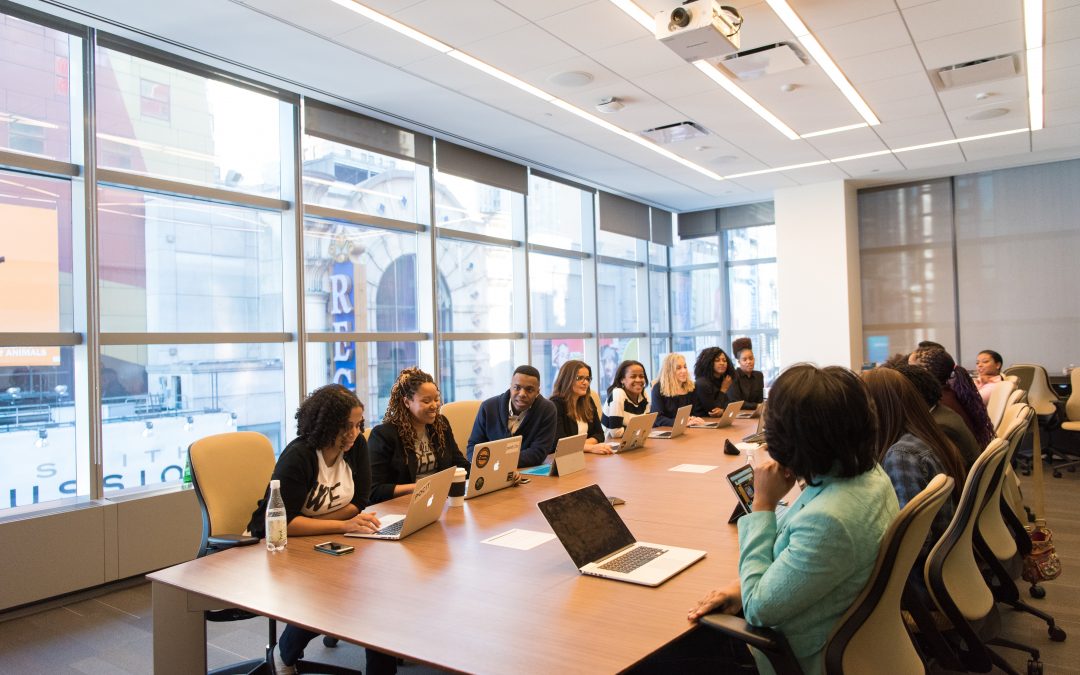
Light Out Of Darkness
Tonight Erica and I went to a candlelight vigil in nearby Danville. The vigil was honouring the life of a Danville-born marine who was killed recently in Afghanistan. We joined Erica’s family there to mark our respects. We didn’t know him and we don’t know his family, but we felt like it was the right thing to do to join the vigil.
I had never been to a candlelight vigil before, and I wasn’t sure what to expect. We drove down to Oak Hill Park in Danville where we saw a crowd of around three or four hundred people had gathered. The crowd was diverse; fellow service men and women, students, couples, young children, and a precession of what looked like bikers holding American flags. We were handed a candle and a local pastor started the ceremony. He talked about this young man’s life, his service to his country, and this tremendous loss to his family. We heard some tearful words from his brother who shared that faith was helping him and his family with their grief.
The pastor talked about the darkness that had fallen upon this local community and asked the crowd to light their candles. Suddenly the once dark park was awash with light. I could see the tearful onlookers marking their respects. While saddening, the sense of local support and emotion was heartening, and I hope it provided comfort to his family.
It is all too easy in our busy lives, surrounded by work, the Internet, television, and other distractions to see these sacrifices made by the brave men and women in the armed forces as just another casualty of war of someone we don’t know. I suspect the majority of people who joined us there tonight didn’t know this young man either.
Well, he was called *Lance Cpl. Joshua D. Corral* and he was *19*. I wish I had got to meet him.

Canonical Community Team 12.04 Plans
With the [Ubuntu Developer Summit](https://uds.ubuntu.com) now completed and the team back home and rested, I have been working with the horsemen to finalize, document, and define their focus in the 12.04 cycle.
At the beginning of each cycle I usually announce the team’s plans for the forthcoming cycle (e.g. [oneiric](https://archivedblog.jonobacon.com/2011/05/23/community-team-plans-for-oneiric/), [natty](https://archivedblog.jonobacon.com/2010/11/16/natty-community-team-plans/), [maverick](https://archivedblog.jonobacon.com/2010/05/28/maverick-community-team-plans/), and [lucid](https://archivedblog.jonobacon.com/2009/12/17/lucid-community-team-plans/)) with a list of the blueprints that we have registered so you can keep an eye on the projects that interest you.
If you want to keep up to date with a blueprint, click on it below and on the right side of the blueprint you should see something such as this:
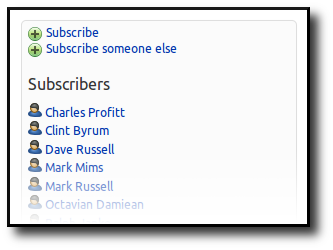
Witness my mad GIMP skills.
There you can click the *Subscribe* link to get email updates when the blueprint changes and when work items are completed.
If you want a more general overview of the work going on in 12.04 and how complete the different projects are, be sure to check out [status.ubuntu.com](https://status.ubuntu.com) put together by the always stunning *Chris Johnson* from the Ubuntu Florida team.
You can also catch us in our weekly IRC team meetings every Tuesday at 8am Pacific / 11am Eastern / 4pm UK / 5pm Europe. The meeting takes place in `#ubuntu-meeting` on the freenode IRC network. You can also join our general IRC channel at `#ubuntu-community-team`.
*Please note: this blog entry is only summarizing the work the members of my team are focusing on specifically. There are many other teams and community projects that are doing great work in Ubuntu 12.04*.
## Cloud and JuJu
I have moved things around a little when it comes to how we are growing our cloud community. *Jorge Castro* is now taking on the growth of the Ubuntu Cloud community, and specifically the growth of the JuJu Charmers community. Jorge is working closely with *Team JuJu*…Clint Byrum, Mark Mims, Kapil Thangavelu, and Juan Negron to grow this community.
We have two primarily goals to accomplish in this cycle:
1. Evaluate the on-ramp, documentation, and resources for creating JuJu charms, ensure those resources are in place and generate community interest and participation in growing this community of charmers.
2. Coordinate a design reboot of [cloud.ubuntu.com](https://cloud.ubuntu.com) and continue to build growth and conversation in the site via regular content and other resources.
I am excited about Jorge’s new role on the team, and I am looking forward to seeing his progress in the forthcoming cycle.
### Related Blueprints:
* [https://blueprints.launchpad.net/ubuntu/+spec/community-juju-advocacy](https://blueprints.launchpad.net/ubuntu/+spec/community-juju-advocacy)
* [https://blueprints.launchpad.net/ubuntu/+spec/community-juju-charm-growth](https://blueprints.launchpad.net/ubuntu/+spec/community-juju-charm-growth)
* [https://blueprints.launchpad.net/ubuntu/+spec/community-cloud-portal-growth](https://blueprints.launchpad.net/ubuntu/+spec/community-cloud-portal-growth)
* [https://blueprints.launchpad.net/ubuntu/+spec/community-juju-charm-docs](https://blueprints.launchpad.net/ubuntu/+spec/community-juju-charm-docs)
* [https://blueprints.launchpad.net/ubuntu/+spec/community-juju-charm-workflow](https://blueprints.launchpad.net/ubuntu/+spec/community-juju-charm-workflow)
## App Community Growth
Application development and supporting the needs of app developers is a core goal for the Ubuntu for 12.04 and more people are working on serving these needs than ever before.
In the last cycle I asked *David Planella* to work on converting the hastily thrown together [developer.ubuntu.com](https://developer.ubuntu.com) that I put together a while back and work with the awesome UX and Design Team to do some IA, re-design, user testing, and implementation. The team did a wonderful job and you can see the results of this work today.
In the 12.04 cycle we want to continue this growth and focus and David has the following core set of goals to achieve:
1. Define and deliver the Phase II incarnation of `developer.ubuntu.com`, with a particular focus on providing (a) improved reference resources and (b) tutorials for app developers.
2. Work to grow a support community who are able to answer questions from new app devs about how to harness the Ubuntu platform.
3. Grow the general community of app devs and get interested and involved in writing apps for Ubuntu.
David will be working with Jonathan Lange, John Oxton, James Westby, and many others to make the magic happen.
### Related Blueprints:
* [https://blueprints.launchpad.net/ubuntu/+spec/community-p-app-developer-community-growth](https://blueprints.launchpad.net/ubuntu/+spec/community-p-app-developer-community-growth)
* [https://blueprints.launchpad.net/ubuntu/+spec/community-p-app-developer-support-community-growth](https://blueprints.launchpad.net/ubuntu/+spec/community-p-app-developer-support-community-growth)
* [https://blueprints.launchpad.net/ubuntu/+spec/community-p-app-developer-site-resources-section-update](https://blueprints.launchpad.net/ubuntu/+spec/community-p-app-developer-site-resources-section-update)
* [https://blueprints.launchpad.net/ubuntu/+spec/community-p-app-review-board](https://blueprints.launchpad.net/ubuntu/+spec/community-p-app-review-board)
* [https://blueprints.launchpad.net/ubuntu/+spec/community-p-app-developer-tutorial-growth](https://blueprints.launchpad.net/ubuntu/+spec/community-p-app-developer-tutorial-growth)
## Developer Outreach
Ubuntu Developers are an essential part of our community, spending their days integrating software, fixing bugs, and making Ubuntu better. In the last cycle we made some fantastic progress on the developer front with improved growth of the number of developers getting approved as either Core-Dev or MOTU, increased active participation, significant improvements in the sponsorship queue, and over 120+ brand new contributors getting their first contribution uploaded into Ubuntu.
This cycle we want to continue this growth, and as ever, *Daniel Holbach* will be focusing his experienced hand on this work. The goal here is simple: *continued growth*.
Daniel will be putting together an advisory team to work with in his weekly work, and working with the team to reach out to new developers to help them through their Ubuntu development experience. The team will also be improving documentation, improving how we celebrate developer accomplishments, improving harvest, and further refining how we connect prospective new developers to tasks.
### Related Blueprints:
* [https://blueprints.launchpad.net/ubuntu/+spec/community-p-dev-outreach](https://blueprints.launchpad.net/ubuntu/+spec/community-p-dev-outreach)
* [https://blueprints.launchpad.net/ubuntu/+spec/community-p-dev-advisory-team](https://blueprints.launchpad.net/ubuntu/+spec/community-p-dev-advisory-team)
* [https://blueprints.launchpad.net/ubuntu/+spec/community-p-weekly-dev-news](https://blueprints.launchpad.net/ubuntu/+spec/community-p-weekly-dev-news)
* [https://blueprints.launchpad.net/ubuntu/+spec/community-p-celebrating-dev-contributions](https://blueprints.launchpad.net/ubuntu/+spec/community-p-celebrating-dev-contributions)
* [https://blueprints.launchpad.net/ubuntu/+spec/community-p-dev-docs](https://blueprints.launchpad.net/ubuntu/+spec/community-p-dev-docs)
* [https://blueprints.launchpad.net/ubuntu/+spec/community-p-making-harvest-rock](https://blueprints.launchpad.net/ubuntu/+spec/community-p-making-harvest-rock)
## Translations
Although *David Plannella* will be spending most of his time on application developer needs, he will be spending some of his time on improving our simplified Chinese support in Ubuntu, helping the community get started with localized ISOs, and re-launching [translations.ubuntu.com](https://translations.ubuntu.com).
### Related Blueprints:
* [https://blueprints.launchpad.net/ubuntu/+spec/community-p-complete-simplified-chinese-translation](https://blueprints.launchpad.net/ubuntu/+spec/community-p-complete-simplified-chinese-translation)
* [https://blueprints.launchpad.net/ubuntu/+spec/community-p-localized-iso-community-growth](https://blueprints.launchpad.net/ubuntu/+spec/community-p-localized-iso-community-growth)
* [https://blueprints.launchpad.net/ubuntu/+spec/community-p-translations-portal-relaunch](https://blueprints.launchpad.net/ubuntu/+spec/community-p-translations-portal-relaunch)
* [https://blueprints.launchpad.net/ubuntu/+spec/community-p-translations-roundtable](https://blueprints.launchpad.net/ubuntu/+spec/community-p-translations-roundtable)
## Upstreams
In addition the work scoped out and planned above, [*Michael Hall* will be joining the team](https://archivedblog.jonobacon.com/2011/11/17/welcoming-our-new-horseman-michael-hall/) in January to work with our upstreams, with a particular focus on Canonical upstreams. I will be expecting Michael to work on the following in the forthcoming cycle:
* Work with the Desktop Experience team to help to continue to grow community participation and ensure the community on-ramp is effective.
* Work with our upstreams to continue the adoption of Unity technology, indicators, and their integration into the Ubuntu platform.
* Work more closely with our derivative distributions and ensure that the infrastructure and services we provide are meeting their needs.
I am looking forward to Michael joining the team in January!
## Quality
I am currently [recruiting for the QA community position](https://archivedblog.jonobacon.com/2011/11/12/qa-community-coordinator-required-apply-within/) and I will be expecting the successful candidate to work on:
* Getting our manual tests in shape for 12.04 with full coverage of our core apps.
* Work with Gema and John-Baptiste to ensure smoke testing results are captured effectively.
* Grow community participation in participating in this testing work at a regular candence.
* Refining and improving our documentation and resources, and growing the autonomy of the community.
I am looking forward to getting this role filled and cranking out this work!
## General and Culture
In addition to these specific 12.04 projects, there some other general Ubuntu community related goals that I am keen to see progress in. This includes:
* Focusing on driving improvements in the [SCALE items I blogged about previously](https://archivedblog.jonobacon.com/2011/11/14/scaling-up/).
* Continuing to make Ubuntu a more personal community throughout the wider team’s projects and contributing to helping to grow mentoring across the project.
* Continuing to built an *appreciation culture*.
* Better recognizing contributions throughout the Ubuntu community.
* Growing and supporting our leaders to be as effective as possible.
### Related Blueprints:
* [https://blueprints.launchpad.net/ubuntu/+spec/community-irc-workshops](https://blueprints.launchpad.net/ubuntu/+spec/community-irc-workshops)
* [https://blueprints.launchpad.net/ubuntu/+spec/community-p-better-recognizing-community-contributions](https://blueprints.launchpad.net/ubuntu/+spec/community-p-better-recognizing-community-contributions)
## Regular Cycle Work
In addition to these tasks, the team will also be working on the usual things we do each cycle. This includes:
* Coordinating the [Ubuntu Developer Summit](https://uds.ubuntu.com).
* Helping to organize our training weeks (*Ubuntu Open Week, Ubuntu Developer Week, Ubuntu App Developer Week, Ubuntu Cloud Days*).
* Continuing to work with Canonical to support the company in working with the community.
* Helping to unblock problems
We look forward to working with you all in the forthcoming cycle!

Canonical Community Team IRC Meeting
Just a quick reminder, tomorrow (Tues 22nd Nov 2011) we will be holding our usual weekly *Canonical Community Team* meeting at **8am Pacific / 11am Eastern / 4pm UK / 5pm Europe**. The meeting takes place in `#ubuntu-meeting` on the freenode IRC network.
You can also join our general IRC channel at `#ubuntu-community-team`.
We hope to see you there!

The Ubuntu Commons
One of the most wonderful things about Open Source and collaborative community is that every community member participates in a *commons*; a shared area of community real-estate in which we can all contribute.
As an example, with most small Open Source software projects, the commons is the code-base, the website, documentation, IRC channel, mailing list etc. Within that project’s commons people can contribute in different ways, such as writing code, fixing bugs, updating the website, creating documentation, providing support etc.
Importantly, for the community to succeed, the commons needs to feel *shared and accessible* and that the *community can contribute and bring value*.
## Our Commons
Ubuntu itself has a rather large commons:
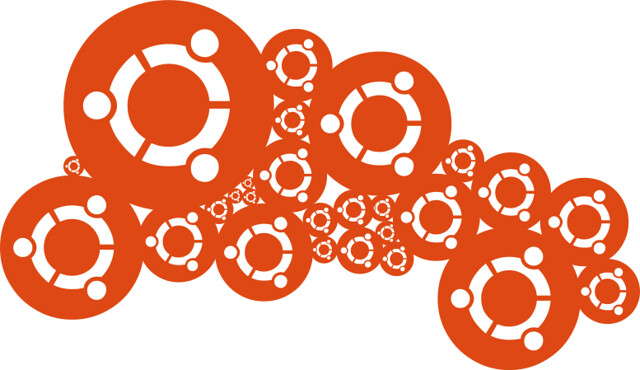
Unlike a single small software project, Ubuntu is really a *collection of projects and teams* that each share the Ubuntu ethos. While the above image is just an illustration (it doesn’t show real data), it provides a good visualization of how the Ubuntu commons (this collection of teams) fits together — each circle represents a different team and the piece of the commons that they maintain.
As an example, the largest circle could be MOTU and the `universe` archive, and the smallest circle could be a LoCo team based in a rural part of a country and it’s website, mailing list, and IRC channel. While these two examples vary in their size and focus, they are both important pieces of the Ubuntu commons and both bring value to Ubuntu and our users.
Like some other Open Source communities such as Mozilla, Fedora, and OpenStack, Ubuntu has a significant commercial investor — in our case [Canonical](https://www.canonical.com). Canonical invests in a variety of areas in Ubuntu including engineering, testing and certification, business development, corporate deployments, legal services, and more.
In some of these positions Canonical staff contribute work that interfaces clearly with our community (e.g. engineering) but other Canonical staff also contribute to areas that are traditionally of little interest or infeasible for our community to work on (e.g. certification, corporate development, government tenders, trademarks management etc). I think few would argue against the general benefits to Ubuntu that Canonical brings with this financial support.
## An Open Commons
In recent times we have made some bold and controversial decisions in the Ubuntu project, but the culture and history of Ubuntu making opinionated decisions is nothing new.
Ubuntu was one of the first distributions to make firm decisions about what software and configurations we shipped in the ISO (as opposed to the common trend at the time of shipping multiple solutions on the discs (e.g. multiple text editors)). It was these decisions that attracted me personally to Ubuntu; it brings focus and builds a better product.
Opinionated decisions are fine though, under the premise that the commons can succeed under the requirements outlined above that it needs to feel *shared and accessible* and that the *community can contribute and bring value*.
Of course, with opinionated decisions comes opinionated reactions and commentary. This opinion, so long as it is respectful, is also wonderful and gives us a great feel for the perspectives of our user-base. Unfortunately I think some of this discussion has also presented a view of the commons that does not really represent the Ubuntu commons fairly.
As an example, there has been criticism that contributing and participating in Unity’s design has been difficult at best. I think many of these criticisms are valid (and there has been some good work going on to help rectify this), but some of this criticism has been communicated out as *Canonical enforcing it’s will on Ubuntu*.
I am not going to to deny that Canonical has a strong editorial influence on Ubuntu…it does…and every one of you good peeps will have your own opinion on those decisions and whether they make sense, but while Canonical influences the project, it never *stops people from contributing openly in the Ubuntu commons*.
In other words, while Canonical may invest in certain software (e.g. Unity, Ubuntu Software Center, Thunderbird integration, JuJu etc), this investment *never* prevents our community from contributing to those areas or other parts of the commons.
## Ubuntu For Everyone
The key point here (and as I [blogged about recently](https://archivedblog.jonobacon.com/2011/11/08/ubuntu-more-than-the-default-install/)) is that Ubuntu is much more than our default installation, and the open nature of our commons fosters an environment in which everyone is welcome to a variety of different Ubuntu experiences better.
As an example, I personally prefer *Banshee* to *Rhythmbox*, and *Evolution* to *Thunderbird*. I also use *Inkscape*, *GIMP*, *Blender*, and *Chromium*. These tools are not shipped by default in Ubuntu, but that doesn’t make them feel any less Ubuntu. they still integrate nicely into my Ubuntu experience, and the visibility and ease of installing these tools has never been better. It is our many community contributors who make these experiences so pleasurable in Ubuntu, each contributing to the wider commons.
This is one of the reasons I am so proud to see other derivative distributions (e.g. Kubuntu, Xubuntu, Lubuntu, Ubuntu Studio) doing their work; they provide entirely different experiences to the default Ubuntu install, but the shared work in the Ubuntu commons means they can build upon work elsewhere in the commons and vice-versa.
## The Opportunity
As Ubuntu has grown in popularity over the years, everything that we do is observed, judged, and reviewed by a global community of users, press, and curious on-lookers. We are standing at the forefront of a tremendous opportunity to take Free Software to more people, and bring technological freedom and opportunity to everyone.
The goal of this post was simply to focus on two core attributes in the Ubuntu commons:
1. The Ubuntu commons provides a wealth of opportunities for contribution and is *open to all*. It is bigger than the default decisions, bigger than the default app selection, bigger than the areas where Canonical invests, and bigger than Unity.
2. There is a place in the commons for *everyone* and for people of *all skills*. The commons includes packagers, programmers, advocates, documentation writers, translators, testers, governors, support providers, and much more.
For us to achieve these goals, and for us to get to 200 million users, we need everyone to bring their expertise, time, and excitement to Ubuntu, and to join us on this journey and to make it is simple and effective to participate as possible.
This is why the Ubuntu commons is so valuable; there is an opportunity for each one of you, wherever you read this, and whatever your skills, to find a part of the commons where you can help. If you want to help and don’t know how to get started, feel free to leave a comment and we will get you on your journey.

Ubuntu Appreciation Day
Today is *Ubuntu Appreciation Day* in which we share our thanks to people in our community for making Ubuntu great. At UDS we talked a lot about growing more of an *appreciation culture* in Ubuntu, and I love how today contributes to that goal. Unfortunately, picking people to thank from such a wealth of incredible contributors is a tough job.
Before I get started, I want to offer some special thanks to my incredible team at Canonical. *David Planella, Daniel Holbach, Jorge Castro* (and soon to join *Michael Hall*) are all a pleasure to work with and bring so much to Ubuntu. I always dreamed of building a team that accomplishes great things with a strong sense of kinship and friendship. I can’t think of a better group of people to have taken this journey with.
Today though I want to thank some of the teams and people that make Ubuntu what it is but who are often behind the scenes turning the crank each day with little fanfare and ceremony. This includes the IS, Launchpad, and Bazaar teams and our community web developers who keep our websites current and our infrastructure up and running, our IRC governance and operator community who keep our channels safe and effective places to be, our global community of LoCo Teams who help get people excited about Ubuntu and our ethos, the Canonical admin team (Marianna, Cezzaine, Michelle and co) for helping to coordinate UDS and events, our many, many translators who make Ubuntu available in your language, and the thousands of people who support our community and answer questions across the Ubuntu Forums, on IRC, in Ask Ubuntu, and elsewhere.
Ubuntu is a wonderful thing, and I feel honoured to work with such wonderful people. Here’s to 200 million users!

Welcoming Our New Horseman: Michael Hall
I am delighted to announce that *Michael Hall*, also known as `mhall119` on IRC will be joining the *Canonical Community Team* and working with our upstreams, with a particular focus on growing participation in Unity and other upstreams closely related to Ubuntu. Michael has a strong development background, has been involved in the Ubuntu community for quite some time, has contributed to many Ubuntu projects (including [loco.ubuntu.com](https://loco.ubuntu.com) and [summit.ubuntu.com](https://summit.ubuntu.com)), and I am excited to welcome him to the team.
Michael starts his new role in my team in 2012. Please give him a warm welcome!
